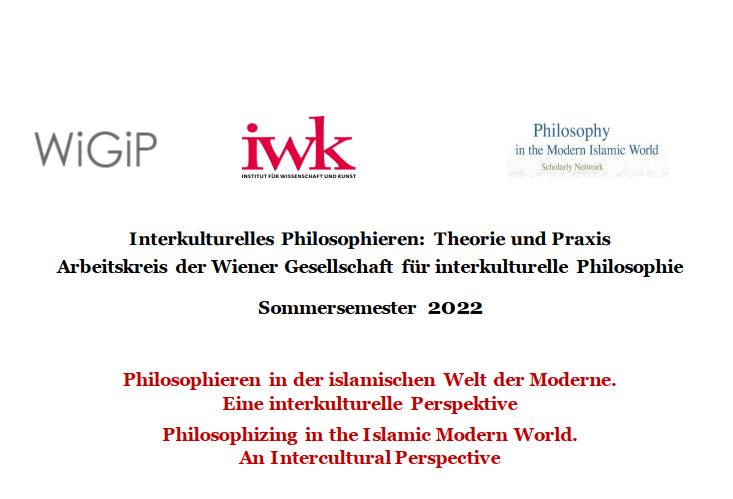Dynamics of Being. Contemporary Perspectives on Ontology in Iran
by: Roman Seidel
Contemporary philosophical discourse in Iran is characterised by two significant developments: on the one hand, the intensified reception and adaptation of modern European philosophical currents in the 19th century and, on the other hand, the mainstreaming of the philosophy of Molla Sadra, who – a contemporary of Descartes – was already active in the 17th century, but whose metaphysical system of thought only became dominant in Iran in the 19th century and is still enormously influential today. Sadra’s analyses of the concept of being, its meaning in the context of change, reality, unity and diversity, and truth are the focus of many philosophical discussions in Iran, including comparative ones.
This panel will address metaphysics in contemporary Iran in three steps. In a short historical-philosophical overview, Roman Seidel will introduce the context, basic ideas and meaning of Molla Sadra in Iran today. Afterwards, Mansooreh Khalilizand will present in her lecture Das Sein Neudenken. Die andere Ontologie von Sadr al-Din Shirazi (Rethinking Being. The Other Ontology of Sadr al-Din Shirazi), Mansooreh Khalilizand will outline the main lines of Ṣadrā’s thought, as well as some of his core concepts such as Substantial Motion, Primacy and Gradation of Being, exploring the innovative nature of his philosophical system – also in relation to the peripatetic tradition of Islamic philosophy. In addition, it will be discussed how central Islamic concepts – Allah, Qur’an, creation – undergo a radical philosophical transformation in Ṣadrā’s system and which aspects of his thought might be relevant for us today. Finally, in a moderated dialogue, the participants of the panel will discuss perspectives on Ṣadrā as a “contemporary thinker” as well as possible linking points of his philosophy in the context of a global philosophical discourse with a view to thinkers of the 20th century – such as Heidegger, Whitehead and Corbin.
The panel will be held in German language. It is part of the lecture series “Philosophising in the Modern Islamic World. An Intercultural Perspective“. In four panels, the international panelists will turn interdisciplinarily and interculturally to various philosophical complexes of topics in the Arabic, Persian and Ottoman-Turkish language area and track down the possibility of global philosophising. The lectures will take place in zoom stream.
Next Panels and Dates
►05th May, 7:00 pm CET via zoom (please register under: office@wigip.org)
Dr. Mansooreh Khalilizand (University of Münster), Dr. Roman Seidel (Freie University of Berlin): Dynamik des Seins. Aktuelle Perspektiven auf Ontologie in Iran (DETAILS)
►09th June, 7:00 pm CET via zoom (please register under: office(at)wigip.org)
Aspects of the Development of Modern Turkish Academic Philosophy
Prof. Dr. Zeynep Direk (Koç University, Istanbul): The Ideal of Turkish Modernity in Turkish Philosophical Humanism (DETAILS)
Prof. Dr. Christoph Herzog (University of Bamberg):On the Institutionalization of Academic Philosophy in the Republic of Turkey (1930s to 1970s) (DETAILS)
Previous Panels
► 17th March, 7:00 pm CET via zoom:
Dr. Sarhan Dhouib (University of Hildesheim), Prof. em. Dr. Anke von Kügelgen (University of Bern): Kritikauffassungen in der arabischsprachigen Philosophie (DETAILS)
Watch the VIDEO recording of the panel
► 07th April, 7:00 pm CET via zoom
Dr. Michael Frey (University of Bern), Prof. Dr. Elizabeth Suzanne Kassab (Doha Institute for Graduate Studies): Nassif Nassar über philosophische Unabhängigkeit und menschliche Freiheit (DETAILS)
Watch the VIDEO recording of the panel
Coordination:
Dr. Sarhan Dhouib, research assistant at the Institute for Philosophy at the University of Hildesheim, Feodor Lynen scholarship holder of the Alexander von Humboldt Foundation.
In cooperation with:
Philosophy in the Modern Islamic World (https://philosophy-in-the-modern-islamic-world.net): Conduct Kata Moser (Universität Göttingen), Roman Seidel (FU-Berlin)
With the collaboration of:
Cristina Chițu, Employee at the Institute for Philosophy at the University of Vienna, board member of WiGiP.
Prof. Dr. Dr. Hans Schelkshorn, Director of the Institute for Intercultural Philosophy of Religion, President of WiGiP.

